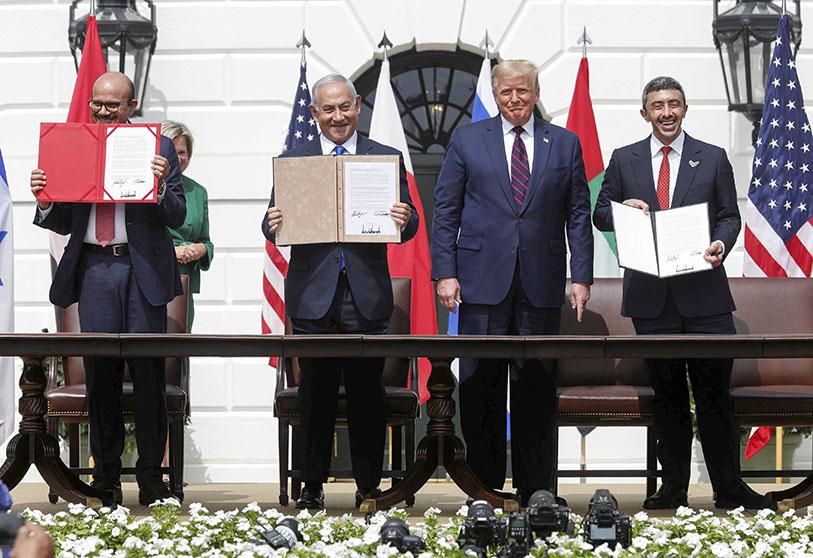Many pundits blame the Abraham Accords for throwing Palestinians under the bus, arguing that peace between Arabs and Israel enraged Palestinians and set the stage for Hamas’s October 7 attack on Israel.
But these peace accords – signed four years ago this month between Israel, on the one hand, and the United Arab Emirates (UAE), Bahrain and Morocco, on the other – have nothing to do with Palestinians.
The Abraham Accords prioritized national interests and ended 60 years of divisive pan-Arab nationalism, which birthed Palestine.
Abraham Accords governments understood that peace with Israel was not incumbent on whatever happens between the Jewish state and Palestinians.
Hence, 11 months after the outbreak of the Gaza War, the Abraham Accords are proving their robustness, even after Abraham Accords governments repeatedly voted against Israel at the UN.
In May, Reuters reported that the Gaza war had cooled “Israel’s once red-hot business ties with UAE.” Quoting “10 Israeli officials, executives and entrepreneurs,” the news agency argued that Israel’s “business ties with the influential Gulf state remain intact but, in a sign of how the conflict has dented enthusiasm, the [two sides] declined to discuss any recent deals.”
Blaming the Abraham Accords for not bringing peace to Palestinians continues. Palestinians and their supporters still expect the 21 member states of the Arab League to withhold peace with Israel until Palestinians get a state.
But if Palestinians expect the Arabs to lend them a hand, Palestinians should also expect the Arabs to have a say on how and when the conflict with Israel should end.
Unconditional Arab support for an open-ended conflict undermines the national interests of the different Arab states. Furthermore, Palestinians demand support but seldom reciprocate. The Abraham Accords upended this unequal relationship: If Palestinians wanted to fight forever, the Arabs had different plans.









